Albert Hammond - Interview
by Lisa Torem
published: 12 / 4 / 2015
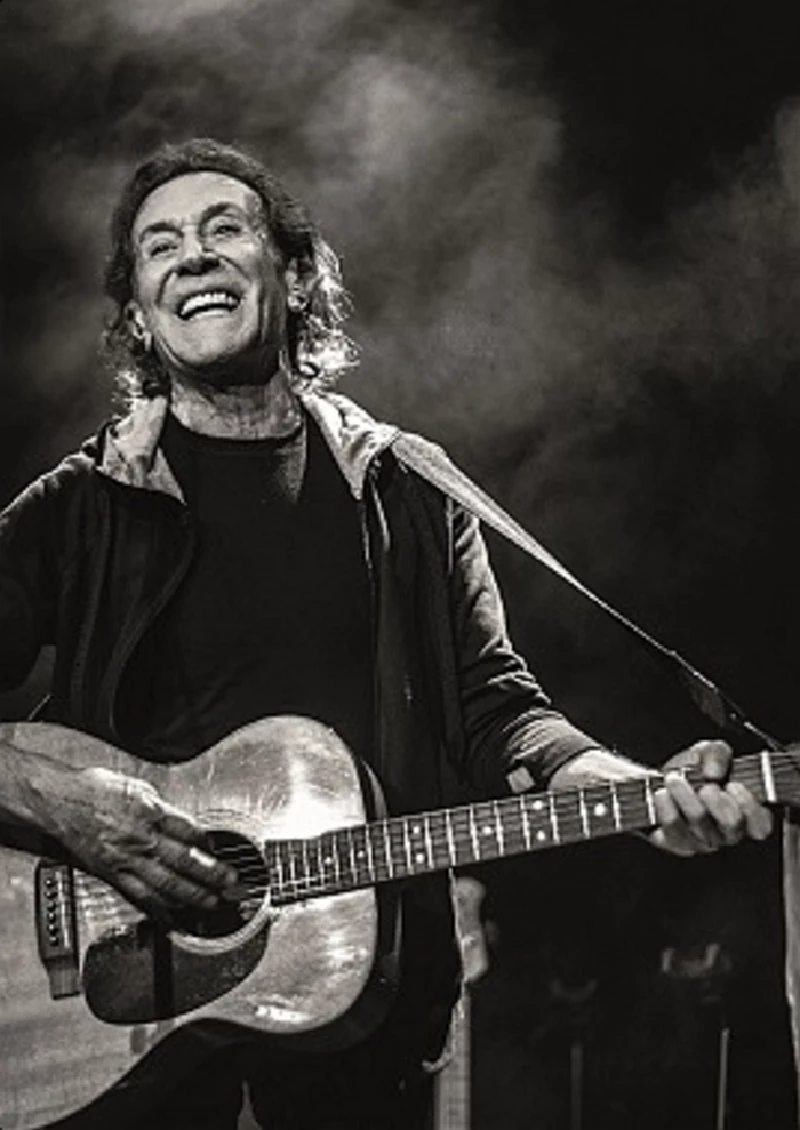
intro
Legendary songwriter Albert Hammond talks to Lisa Torem about his extensive fifty year career and some of his classic songs
Albert Hammond’s last two albums, ‘Songbook 2013 Live in Wilhelmshaven’ and ‘Songbook Tour 2015’ are intimate and worthy of much acclaim, yet they barely scratch the surface of this legendary singer-songwriter’s remarkable career. His accomplishments include “360 million records sold worldwide” over fifty prolific years. ‘The Air That I Breathe’ and ‘When I Need You’ alone have been covered countless times by a litany of sought-after vocalists. Hammond was inducted in 2008 to the Songwriters’ Hall of Fame and that year also received an OBE. Independently and with collaborators the likes of John Bettis, Mike Hazelwood and Dianne Warren, he has been responsible for three undisputable decades of hits, beginning in the 1960s and extending throughout the 1980s. He has also garnered major international support, winning an Emmy for ‘Cantare, Cantara’ in the Latin American market - his catalogue has been translated into multiple other languages as well. In his native Gibraltar, which he affectionately refers to here as “Gib”, a commemorative stamp is in the works. This year he will undergo an extensive tour through out Ireland, England, Denmark and German - his ‘Songbook Tour’ - during which he will not only dish out the hits, but entertain his audiences with informative and personal anecdotes, the backbones behind many of his melodies, lyrics and themes. Despite his awards and legendary status, Albert Hammond has let none of the celebrity hoopla distract him from what is, to him, truly imperative, the satisfaction of crafting a song that brings satisfaction and a sense of unity to his legion of fans. In his second interview with Pennyblackmusic, Albert Hammond celebrated his catalogue and got us up to speed on his current plans. PB: In 1960 you played with the Diamond Boys in Gibraltar. What kind of influence did the group have on the local scene? AH: The influence, for me, was a guy by the name of Bobby Hunt and the Everly Brothers and Elvis and people like that. The Diamond Boys was a band that performed, and I taught everybody how to play their instruments. I don’t know how I did that but I did it at the beginning. We played skiffle, so the bass was a stick with a string and a tea chest and the guitars were just acoustic guitars and a washboard. We went on to electric guitar and to looking for competitions where maybe we could win a contest or get a record deal, which we did. We went to Madrid and entered a rock festival and won and got a record deal with RCA. The Diamond Boys only lasted for a year and all of these things happened in one year because the boys didn’t want to move on, so when it came down to it I said I’m just going to move on and I did. PB: What was happening in Gibraltar prior to your band? Was it a jazz scene? AH: It was all kinds of music. The beauty about Gibraltar is that you would hear everything from Arabic music to Flamenco to rhythm and blues and jazz to pop and rock. My uncles used to own jukeboxes, and they used to put these jukeboxes in the parks in Gibraltar, and so when the records got old and new ones came in they would give me those records, and that’s how I got into music at a very, young age, about seven or eight. PB: You co-wrote ‘The Air That I Breathe’ with Mike Hazelwood, which was a huge hit. What prompted that emotional ballad and how did you going about collaborating? AH: Actually, I wrote the song almost on my own. Even though Mike and I co-wrote a lot of songs together, that particular song was written for a girl that I met when I came to America in 1970. Her name was Linda Kose, and she was the secretary to a couple of promotion men that I got to know at ABC Dunhill. Linda was kind enough to give me a place to stay and let me have her car while she went to work. She had a convertible Karmann Ghia. She just had a heart of gold. I would use her car every day and one day I said, “No, take the car, I’ll just stay here,” and I sat down and wrote this song for her and then I played it for Mike and he tweaked it. PB: In the 1970s, you charted frequently with ‘It Never Rains in California’. Did you predict that that song would be so successful? AH: No. No (Laughs). The funny thing is that I wrote that song in England before I came here. I was over at Mike’s in Fulham at his apartment one morning. I was messing around with the guitar and I looked up and there was a library on the wall, and I saw this book ‘The Railways of Southern California’, and suddenly this tune popped up and instead of “it never rains” I sang, “on the railways of Southern California,” and he just said, “What’s that?” and I said, “I don’t know. I was looking at this book and this thing came up,” and he said, “Did you say, ‘it never rains?’” and I said, “no, the railways” and so that’s how the song was born. The problem was that I played that song for quite a few people in England in 1969. I played it for the Seekers, Glen Campbell, and a few other people and they told me it was the worst thing they had ever heard. They weren’t interested. PB: And that didn’t disturb you? AH: It did because I never played that song again to anyone until I auditioned for Clive Davis and I didn’t play it. I played for 45 minutes at the Beverly Hills Hotel on a stool with my guitar in front of a bunch of people he had there and I played every song, ‘The Air That I Breathe’, ‘The Free Electric Band’, ‘Down by the River’, many songs, but I never played ‘It Never Rained’ because I was told it was such a bad song. Clive said it was wonderful; go in the studio. “Do you have any other songs?” And I said, “I have this other one, but they told me it was such a bad song.” He said, “Play it for me,” so I played it and he said, “Albert, this is going to be your biggest hit. This is going to be the name of your album.” So there you go. If I hadn’t played it,that song would probably still be in a closet somewhere (Laughs). PB: You have recorded quite a bit of music in the Spanish language. Whilst some artists use a phrase or write a chorus in an alternative language, you recorded entire songs. AH: ‘It Never Rains’ became such a huge hit in the Latin market that I was in England doing my third or fourth album and the director of CBS in Spain called and said, “Your record is so big here and you speak Spanish, why don’t you do a Spanish record?” I said, “I don’t know. I’ve never really written in Spanish. Let me think about it.’ I called my mum. “What do you think about if I record all these songs we used to sing in the house? These Mexican songs, Venezuelan songs, Cuban songs,” and she said, “That probably would be great,” so I put a bunch of songs together. I thought I’ll just do things I haven’t written and I played them to the guys in England, the musicians, and they gave it a different flavour, more of a today - when I say, today, I mean, in those days. These were old mariachi songs and I just made them different ,and they became so popular worldwide that people thought I’d written them. They still think I’ve written them because they were so uniquely done. The album was called ‘My Spanish Album’ because every time people would ask, “What are you doing now?” I’d say, “Oh, I’m doing my Spanish album.” PB: Is the Spanish language part of your heritage? Your accent is so perfect. AH: That’s because in Gibraltar we’re totally bilingual. We speak two languages. I don’t remember knowing two languages. I thought what I spoke was one language - but I was speaking two - until somebody said, “No, this is Spanish and this is English.” When you’re out in the streets, you’re just speaking two languages. It’s an amazing thing but I’m totally bilingual. I can read and write it, and that’s what’s great about Gib too. PB: You wrote ‘When I Need You’with Carole Bayer Sager. How did you feel about the Leo Sayer version as well as other versions? AH: I loved Leo’s version. I loved the Luther Vandross version. I loved every version. It’s such a beautiful song. It’s almost like a nursery rhyme. It’s so simple that no matter who does it, it sounds great. I’ve done it in English and Spanish, and in the Spanish market it became huge. But Leo’s version is probably my favourite version. When I wrote that song, I had just come off a huge tour. I’d been away for over a year from home, and when I got to New York I was staying in the Warwick Hotel, which was opposite CBS. It was close by so I could just walk over. Somebody had invited me to see Paul McCartney, ‘Wings Over America’, at Madison Square Garden and when I saw that I thought, “This was so great, but I could never be that.” I went back to the hotel and called my wife and I told her, “I’m going to stop doing this because I miss you guys. I’ve been away for over a year and I haven’t seen you, and I’ve just seen McCartney and it was so good,” and she said, “You’re crazy. You’re you and he’s he. Carry on.” So when I hung up the phone, I picked up the guitar and the first thing that came into my mind was the chorus of ‘When I Need You’. PB: That sounds like a magical moment. AH: Yeah, and I went to see Carole the next day, and I told her the story and how the song had come about, and she wanted to change the title. I said, “No, no, it’s impossible to do that because that’s what it’s about. It’s about missing my family.” So we finished the song, and the next thing I knew we had recorded the song, but I did an album in 1974 with ‘When I Need You’, ‘To All The Girls I’ve Loved Before’, ‘Moonlight Lady’, and ‘Ninety Nine Miles to LA’. I took it to CBS , and they said they could not hear any hits on this record. They were not going to release it and they didn’t. The next thing I knew in 1976 Leo Sayer had a big hit with ‘When I Need You,’. So, they released the record and they called it ‘When I Need You’, one of those things in life. PB: I imagine that ‘One Moment in Time’ exceeded your expectations, reaching such a wide audience. AH: That’s just one of those things. People say, “How did you write that song?” and I never know how I write these songs. I can tell you that when NBC called me and said, “Would you write a song that would represent America in the 1988 Seoul Olympics?” I said yes out of instinct, but when I hung up the phone I was so scared. And then I thought, they probably called a thousand other people to write a song, but I called my friend, John Bettis, because I knew that he loved the Olympics, and he watched them and knew so much about it. I said, “John, I’ve been offered this. What do you think? Can we write it?” He said, “Sure. No problem.” A few hours later, he calls me up and he reads me this lyric of this chorus he had just written and asked, “What do you think of this?” “Give me one moment in time when I’m more than I thought I could be/When all of my dreams are a heartbeat away and the answers are all up to me.” “Wow,” I said. “That’s great. Hang on a second,” and I went to the piano and I put him on speaker. I said, “Listen, what do you think of this?” and I just started to sing this tune, inspired by those words. When I finished singing, he said, “That’s fantastic. Let’s get together tomorrow.” I said, “Okay,” and we did. We got together the next day. Then I went in and did a demo of the song, and sent it in to NBC to the people who had called me, and the next thing I knew they called back and said, “This is fantastic, who should do it?” and I said, “I don’t know, but why don’t you send it to Clive Davis?” because he knows everything and he probably knows if it’s a hit or not. They sent it to Clive and a few weeks later Clive sent me a cassette with Whitney (Houston) singing it, but originally in my mind when I was writing the song I had Elvis in mind. I thought if there was anybody that could sing a song that represents America then it would be Elvis - Elvis was dead, but it didn’t matter to me. It was the inspiration of thinking Elvis would sing the song that would make me write it that way. PB: That’s an interesting image. I can totally imagine Elvis singing that song. AH: Exactly, but these are the things that take you places, the different roads you take and you end up in a place and go, oh, how wonderful this is. PB: In 2005, you recorded ‘Revolution of the Heart’. I hope you don’t mind the name checking, but there were ballads that brought to mind John Lennon and Bob Dylan and I could imagine those artists actually performing those songs. Were you into a particular mindset then that inspired these styles? AH: It was all about the Iraq War. I was so against it that I started to write all these different songs, and ‘Revolution of the Heart’ is one of my favourite albums. It’s a simple album. I called my friend, Leo Sayer, and said, “I’ve got all of these ideas and tunes and I want to make a record. Do you want to work with me?” So he came over to LA and we worked on the songs, and once we had the songs we went to Denmark to this farm and stayed there for a month. We got three other guys and we just recorded for a month. It was one of those records based on the Iraq War. PB: And it really had that very strong, passionate, protest song feel. AH: Like, ‘Not in my Name’, ‘Photograph’ - a couple of soldiers from each side, it was very simple and I tried to bring in the ‘60s, ‘70s, the ‘80s into the records, and that’s why some things sound Dylanesque and some sound like Lennon. PB: Was ‘Rock and Roll Hero’ related to your own experience? AH: That was me as a kid. I loved that song. Some songs were about the war, some were about me and I suppose every song I’ve ever written has been about me, how I feel about things, who I am, who I was, what I’ve become, who I’m in love with, who I fell in love with; how sad I feel about animals sometimes, so these are all the feelings and passions that make you write certain songs and you don’t know what those songs are going to be or who’s going to do them, but you just do that because it’s inside of you. It is how you feel and you want to let it out, and I must say without all of these great artists probably I wouldn’t be who I am. These songs would probably not have seen the light of day. PB: I imagine they would say that about you too. It does take a team. AH: I’m sure, but I feel this way. I’m just passionate about all music. I was lucky. I’m not rock and roll or rhythm and blues or pop or country. I’m all of it. I just love music. I think music is music and it doesn’t matter. I don’t put a name on it. I’ve written from Steppenwolf to Johnny Cash to Roy Orbison to Tina Turner to Aretha Franklin to Whitney Houston to Diana Ross to Neil Diamond and for Spanish people and it doesn’t matter. I’m not, “Oh, I’m only rock and roll.” I don’t care. I think music is music and, however, I feel that’s what I do. PB: You collaborated with Duffy in 2010. How did that come about? AH: She’s a wonderful person, but I think that sometimes artists are their own worst enemies and they don’t listen until they hit a brick wall, and once they hit a brick wall it’s all over. The collaboration started because my wife saw Duffy on TV and said to me, “You’ve got to see this girl. She’s blonde, but she sings like a black woman,” and so I listened to her and I loved it and I called her manager, who was the owner of a record company in England who had the Strokes on it. My son is in the Strokes. I actually knew her. I said, “You’re managing Duffy and I’d really love to write a song with her or maybe meet her.” She said, “We’re coming to the Grammys in February, so come and have a drink with us.” So they did and I went over to the hotel. We were chatting with her and Duffy. I said to Duffy, “I’ve got this title, ‘Don’t Forsake Me’, and I’ve got this tune and I’d love to play it for you.” We carried on talking, and then at the end of the conversation she said, “Why don’t we meet up tomorrow and you can play me the song? I love the idea of ‘Don’t Forsake Me’.” After the Grammys, she came to my apartment and we sat for a couple of hours and finished this song and that was the beginning. Then she called me up and said, “Can we write again?” I went off to Spain, and she spent a couple of weeks down there with me, and we wrote twenty songs and it was great. There was chemistry there and the songs we did - the problem was the recording. She wanted to do it herself, and, unfortunately it didn’t make the right record. PB: You’re referring to production issues? AH: Exactly. Either let me produce it or some other producer - she put my name on it, but that’s not what I did. PB: This is the DIY generation. AH: Yeah. There are artists that are their own worst enemies, just like there are actors that are the same way and writers that are the same way. There are people that are their own worst enemies. You sometimes can’t help them because this is the way and that’s it. We still speak. I still think she’s a very talented human being, and we’re still good friends. PB: You released an album featuring primarily female duets called ‘Legends’, including vocalist like Bonnie Tyler and Elena Paparizou. Is it especially fun to record duets or to write duets? AH: No, I never wanted to do duets. The reason for ‘Legends’ was that I wanted to own my own masters. CBS owned the old masters and every time someone asked me for a song they would ask for so much money that the song was never used, so I decided to re-record my stuff. I thought that maybe I could do that, and then I could own them. So I did. I re-recorded all the hits, and I went to CBS and played it for them, and then they suggested the duets. I didn’t even think of that. They also called it ‘Legends’. I just wanted to record them and have them. I’m glad they did because now I’m able to go on the road with this idea I have called ‘Songbook’, and it’s very successful in Europe and South Africa and, hopefully, it will come to America this year or next year. PB: Do you see yourself working in the near future with your son? AH: Of course. I always do. The only thing is I want him to keep doing what he’s doing because it’s important to him. We did record a song together on the ‘Legends’ album, but eventually, yeah, we’ll probably do something together. Right now, I think it’s important that he carries on with the Strokes on his own material with his own records, and I don’t want to take him away from that, and, hopefully, he’ll ask me before I’m too old. PB: I guess the protocol with our children is that they have to ask us first. AH: Exactly (Laughs). But I love what he does and he’s a great kid. In fact, he’s mixing his new album, which is fantastic and he asks me for advice and tells me what he’s doing so he doesn’t keep it a secret, which is nice. PB: If you could make one wish for the world in its current state, what would it be? AH: My one wish is that it changes for the better; that it becomes about love, about respect, about honesty. I think we need Gandhis and Martin Luther Kings, and I think Jesus Christ was like that. I don’t believe about the Son of God, but I believe he was a great man, who had some good to give, but nobody listened. That’s what I would love, for the world to be one again because we are in bad shape. I can tell you that but you have to carry on because you can’t fight it and people have to realise - all the politics, the religions have come to a point where it’s just bad. It isn’t what it maybe was supposed to be. Democracy is not democracy anymore. I don’t know. I’m just a little grain of sand. All I can do is write songs, and say what I feel in the songs. PB: And you’re on the good side, making people happy. AH: That’s my joy. My day will come and it won’t matter. I’ll leave this world and be a happy man because I’m leaving something wonderful behind. I’m not leaving chaos and I’m not leaving tragedies. Maybe the tragedy is that people like myself die and people go, “If only they could stay, because they make us happy.” I believe in love, but real love. My mother was 95 the day before yesterday and she’s great. She still does her own cleaning and she goes to the market and she’s unbelievable, and I hope I’m like her so I can be around at that age to make people happy because that’s probably my greatest achievement in life is that I’ve made so many millions of people happy. PB: Thank you. More information can be found at www.alberthammond.com. Albert Hammond will be touring the UK in April.
Band Links:-
https://www.facebook.com/AlbertHammondOfficial/http://www.alberthammond.com/
https://twitter.com/alberthammond
https://www.instagram.com/alberthammondofficial/
https://www.youtube.com/user/albertlouishammond
Picture Gallery:-
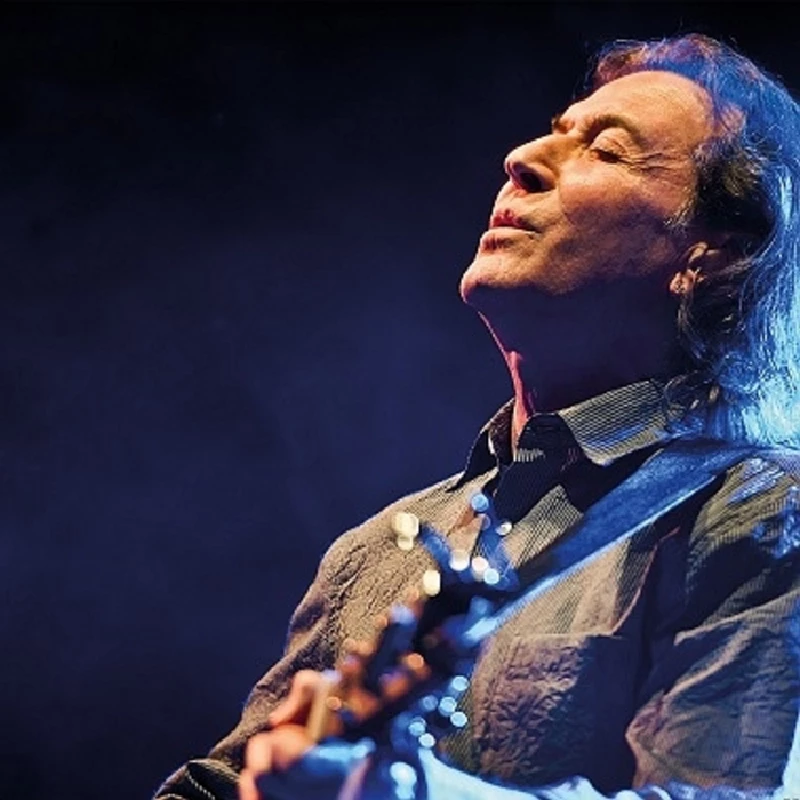
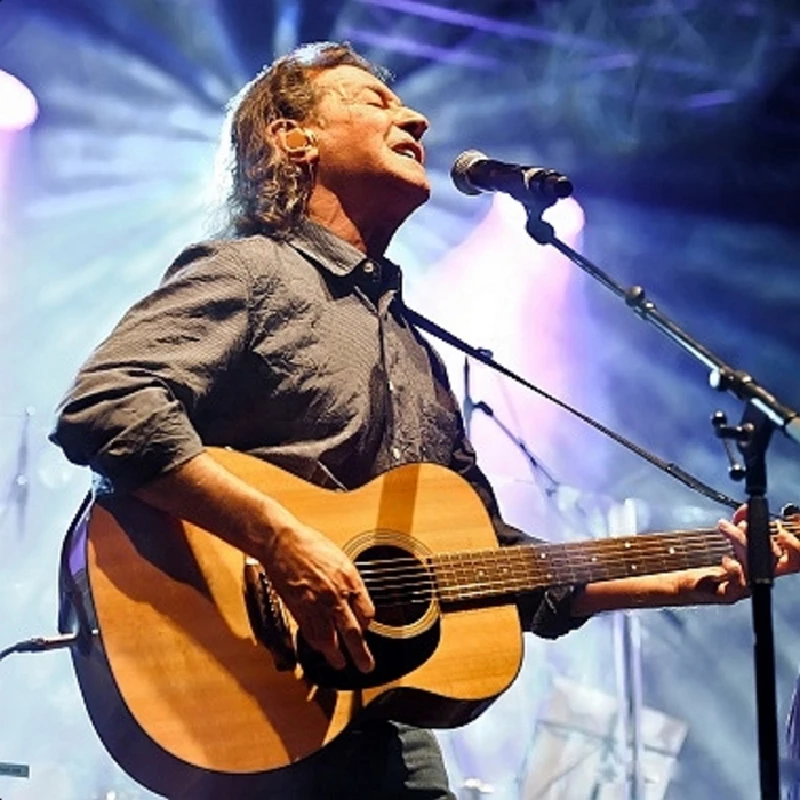
interviews |
|
Interview (2017) |
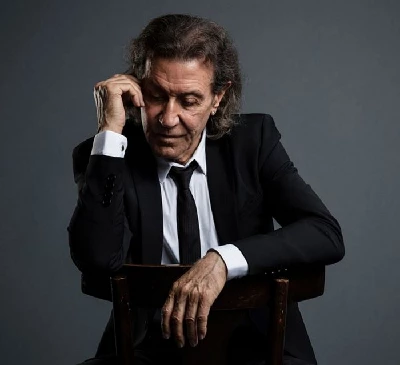
|
| Multi-award winning performer and songwriter Albert Hammond rose to the challenge of releasing 'In Symphony', in which he reimagines some of his best known songs with the help of an orchestra. He speaks with Lisa Torem about fulfilling a lifelong dream and more |
live reviews |
|
Memorial Hall, Sheffield, 21/5/2014 |
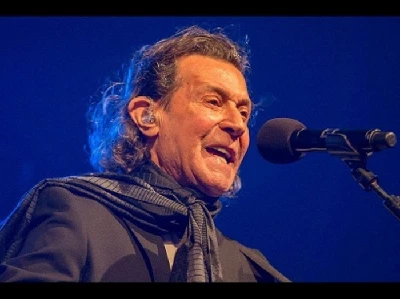
|
| At the Memorial Hall in Sheffield, Nicky Crewe watches musician and producer Albert Hammond play a revelatory set from across his fifty year songwriting career |
soundcloud
reviews |
|
Legend II (2013) |
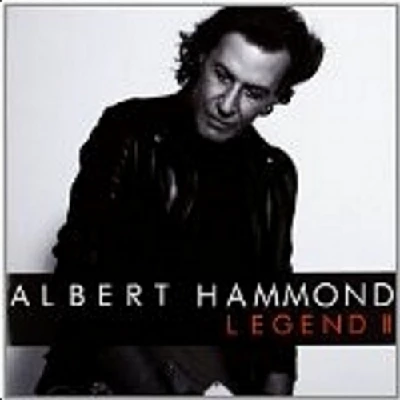
|
| Fantastic retrospective album from Albert Hammond, who has taken some of his best known songs from his fifty year career as both a singer and songwriter and reworked them |
most viewed articles
current edition
Carl Ewens - David Bowie 1964 to 1982 On Track: Every Album, Every SongArmory Show - Interview with Richard Jobson
Bathers - Photoscapes 1
Colin Blunstone - Thalia Hall, Chicago, 16/7/2025
Visor Fest - Valencia, Spain, 26/9/2025...27/9/2025
Billie Eilish - O2 Arena, London, 10/7/2025
Robert Forster - Interview
Loft - Interview
John McKay - Interview
Editorial - July 2025
previous editions
Heavenly - P.U.N.K. Girl EPManic Street Preachers - (Gig of a Lifetime) Millennium Stadium, Cardiff, December 1999
Oasis - Oasis, Earl's Court, London, 1995
Trudie Myerscough-Harris - Interview
Beautiful South - Ten Songs That Made Me Love...
Pixies - Ten Songs That Made Me Love...
Prolapse - Interview
Paul Clerehugh - Interview
Doris Brendel - Interview
Simon Heavisides - Destiny Stopped Screaming: The Life and Times of Adrian Borland
most viewed reviews
current edition
Amy Macdonald - Is This What You've Been Waiting For?Sick Man of Europe - The Sick Man of Europe
Alice Cooper - The Revenge of Alice Cooper
Phew, Erika Kobayashi,, Dieter Moebius - Radium Girls
Davey Woodward - Mumbo in the Jumbo
Lucy Spraggan - Other Sides of the Moon
Blueboy - 2
Cynthia Erivo - I Forgive You
Philip Jeays - Victoria
Lapsley - I'm a Hurricane, I'm a Woman In Love
Pennyblackmusic Regular Contributors
Adrian Janes
Amanda J. Window
Andrew Twambley
Anthony Dhanendran
Benjamin Howarth
Cila Warncke
Daniel Cressey
Darren Aston
Dastardly
Dave Goodwin
Denzil Watson
Dominic B. Simpson
Eoghan Lyng
Fiona Hutchings
Harry Sherriff
Helen Tipping
Jamie Rowland
John Clarkson
Julie Cruickshank
Kimberly Bright
Lisa Torem
Maarten Schiethart